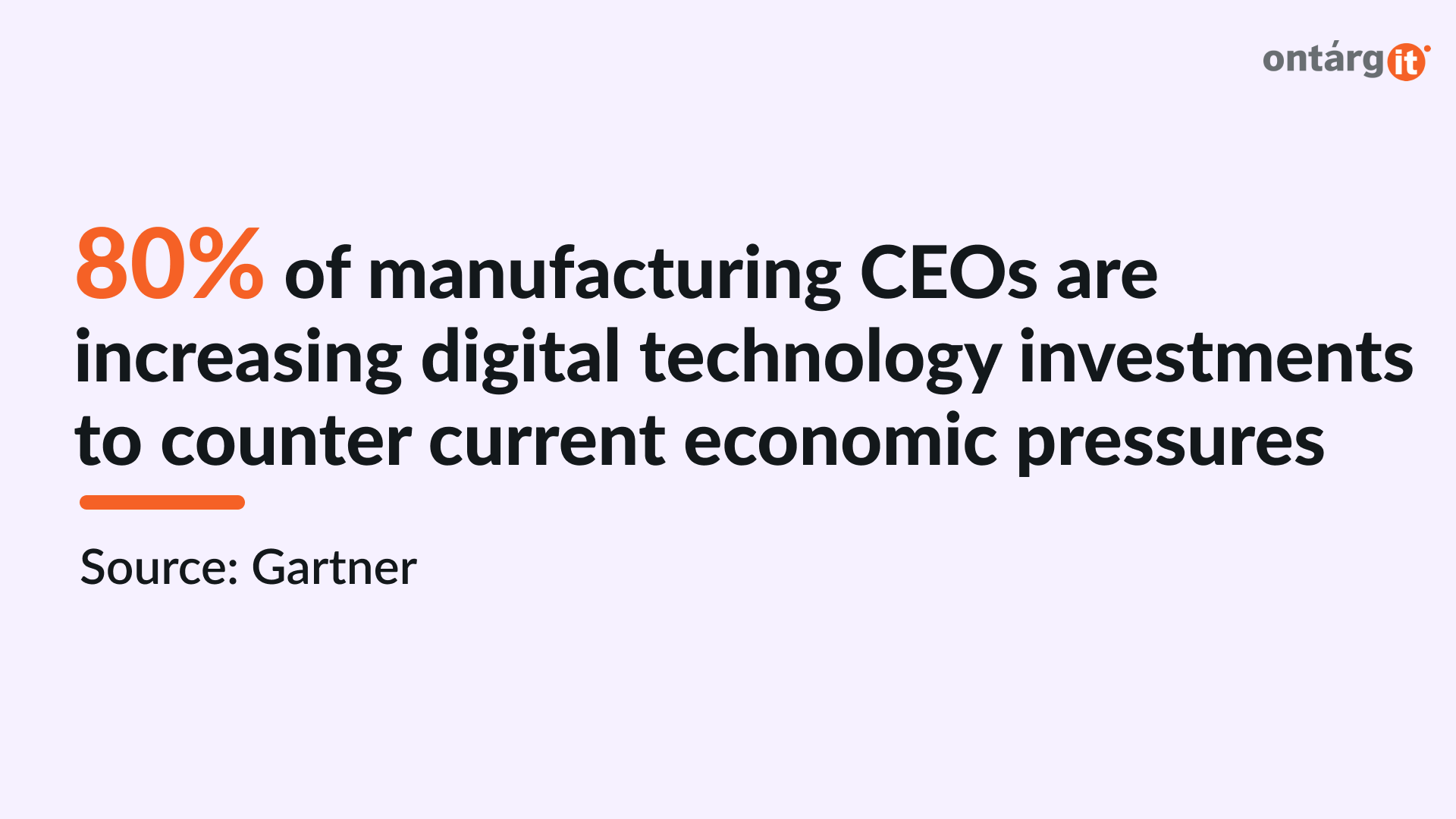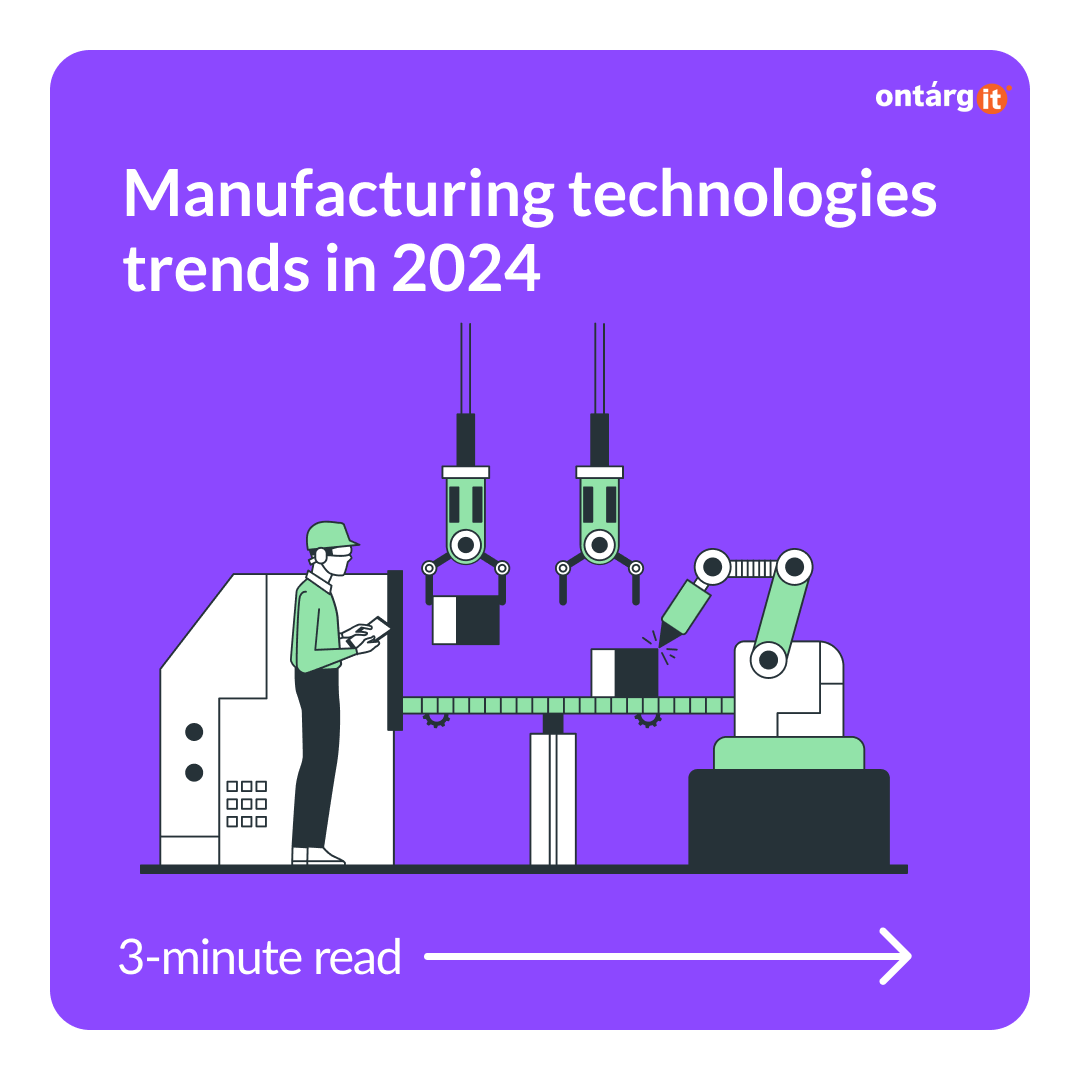In an era marked by significant disruptions, the manufacturing sector stands at a crossroads where adopting technology-driven strategies is not just beneficial but essential. Among them, trends in manufacturing include integration of cloud computing, the Internet of Things (IoT), advanced analytics, and Artificial Intelligence (AI) offers a beacon of hope. These technologies enable manufacturers to streamline their operations, enhance workforce efficiency, reduce operational costs, adopt sustainable practices, and minimize environmental impact.

The Rise of Intelligent Factories
Intelligent factories emerge as a revolutionary solution, transforming the manufacturing landscape. By harnessing the power of digital technologies, these factories offer an unmatched level of resource and cost optimization. Key trends include real-time operational visibility, predictive maintenance, and the promotion of innovation through seamless data sharing between production and design teams. The result is a significant improvement in Overall Equipment Efficiency (OEE) and resource management, marking a departure from traditional manufacturing methods.
Microsoft Cloud for Manufacturing empowers manufacturers to integrate advanced technologies seamlessly across their operations. From IoT sensors that stream real-time data to optimize equipment effectiveness to digital twins that provide new ways of testing products, Microsoft Cloud for Manufacturing offers tools that enhance productivity and innovation.
With capabilities like Azure Arc for cloud-to-edge visibility and control, and mixed reality apps from Dynamics 365 to provide holographic instructions to workers, manufacturers can unlock new levels of operational efficiency and agility.
Fostering Innovation in Product Development
Staying competitive in the manufacturing industry requires a relentless pursuit of trends in manufacturing and innovation, especially in product development. The application of IoT, AI, and robotics enables the creation of smarter, more efficient products. Digital twins and simulations facilitate global collaboration, allowing for the optimization of products from conception to completion. This approach not only meets the growing consumer demand for eco-friendly products but also shortens the time-to-market, enhancing the manufacturer’s competitive edge.
Building Resilient Supply Chains
In response to the challenges posed by global disruptions, the document advocates for a strategic restructuring of supply chains. Achieving real-time visibility and employing cloud-based solutions and AI-driven analytics are crucial for maintaining a proactive supply chain management strategy. These initiatives ensure the seamless availability of resources, underpinning the manufacturing process and safeguarding against potential disruptions. Microsoft Dynamics 365 for Manufacturing supports this innovative ecosystem by streamlining product lifecycle management and fostering collaboration across global teams.
Modernizing the Customer Experience
Meeting the modern consumer’s expectations trends requires manufacturers to adopt a customer-centric approach. Advanced sales tools designed for B2B interactions, coupled with strategic investments in personalized marketing and AI-enhanced service support, are fundamental. These efforts not only enhance customer satisfaction and loyalty but also position manufacturers to capture a larger market share and achieve greater profitability. Microsoft Dynamics 365 for Manufacturing enriches this strategy by offering deep insights into customer needs and behaviors, facilitating personalized customer interactions, and streamlining service operations.
The path to success in today’s rapidly evolving manufacturing landscape is paved with technological innovation. Viewing technology as an integral component of strategic planning, rather than a supplementary addition, is vital. This shift in mindset enables manufacturers to unlock new efficiencies, achieve cost savings, maximize return on investment, and ensure long-term sustainability in a digital-first world. Incorporating solutions like Microsoft Cloud for Manufacturing into their digital strategy equips manufacturers with the tools needed to navigate the complexities of the modern industrial environment successfully.


















